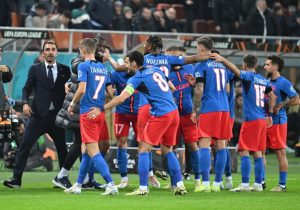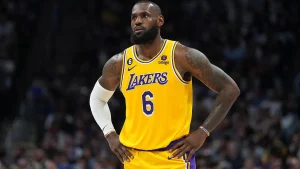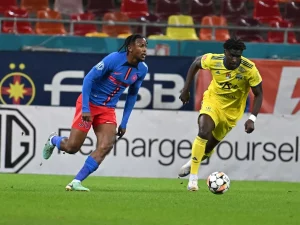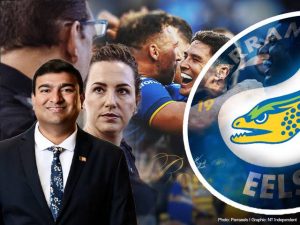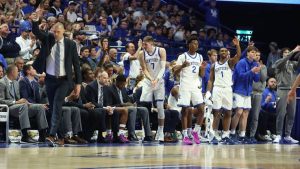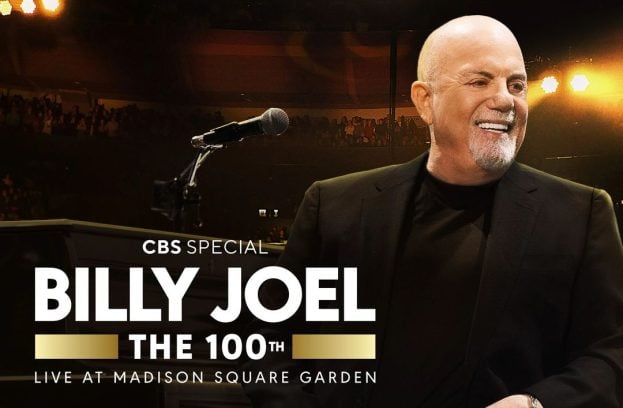
Billy Joel on Why He’s Not Making a New Album and ‘Wasn’t Surprised’ by His CBS Concert Special Snafu: ‘I’ve Always Kind of Been Cut Short by TV’
But that doesn’t mean he likes it.
“I’m never crazy about doing TV. I don’t think I’m telegenic anyway,” he says. “I think I’m one of those artists who should be heard and not necessarily seen.”
It’s the same reason that he hasn’t done many music videos. Although he put one out for “Turn the Lights Back On,” his first single in decades, he really didn’t want to.
“I don’t like being on camera. I’m camera-shy. I always feel like a geek when I’m on TV because I’m static at the piano, I can’t move around. I can’t use body language. I’m stuck at the piano,” he says. “And it just doesn’t feel rock ’n’ roll when you’re on camera. You’re just locked into place.”
He sees the dichotomy — he’s sold more than 160 million records worldwide and is camera-shy — but says he “signed on as a musician, not as a movie star.”
Unlike live music, “there’s a lot of fake stuff TV gets away with” thanks to editing, he says. Meanwhile, when he makes a mistake on stage, he stops and tells the band to start over.
“The crowd likes that because there [on stage] you’re being true to that,” says Joel. “On TV, you can fake a lot of stuff and even the video that I made was AI, so that was fake, too.”
Just two months after his special aired, he performed the new song at the Grammys.
“I wasn’t crazy about doing that either. That was a TV audience, and it was done in Los Angeles, which is a showbiz town, and it was all based around their presentation,” he says, noting that closing out the show as he did meant people were leaving during the performance. “We were up there on stage, like, ‘Do we sound bad?’ … Because usually that’s the biggest song of the night! So, me and TV, we don’t always get along.”
A lot of that complicated relationship comes down to the quality of sound. Joel has performed the National Anthem at two Super Bowls, and the second time, he couldn’t hear himself at all. “It was a mess, and people thought I was using Auto-Tune or I was using some kind of phony corrector, which I’d never use,” he says. “That’s what happens on TV!”
Sound errors aren’t the only mishaps that happen when converting a concert to the small screen. When airing the special, CBS accidentally cut the broadcast short, right in the middle of Joel’s performance of “Piano Man.” They later apologized.
“I wasn’t surprised,” Joel quickly responds when asked about the snafu. “I’ve never been really happy with the way music is presented on television. I think for TV people, it’s really all about the visual. If you’re looking at a television set, you’ll see a big screen and a little tiny speaker and that should tell you enough about where their priorities are. They have a hard time getting the audio right, and they also don’t really know how to present new music. I wasn’t surprised that it got cut off short because I’ve always kind of been cut short by TV.”
MSG, however, never cuts him off. Since his first show at the Garden in December 1978, every single one of his shows at the iconic venue has sold out. Joel will perform his final concert of the residency in July, a bittersweet fact.
Not only is the stadium “acoustically perfect,” the Big Apple crowd is always ready to rock. “The energy level in New York City is always crazy.”
Ending the residency does have its perks, though. “I haven’t been able to play any other place in the New York area for 10 years because that was part of the deal. There was an exclusivity clause that prevented us from playing stadiums or other venues in New York City, but now we’ll be able to do that. So, we’ll see how that goes,” he says.
But it’ll be hard to match that sound — and he could always return.
“I am kind of remorseful about not playing there anymore, for the time being. It doesn’t mean we can’t go back there any time. We’re going to miss that place,” he says. “And if we get an opportunity to play the Garden again, we probably will.”
The MSG audience was “psyched” when taping the special, as were Joel and his guests, Jerry Seinfeld and Sting. While he planned to bring out Sting, Seinfeld was coordinated by the producers. Oddly, the three men all have a connection.
“Jerry bought my house on Long Island when I was selling it back in 2000, and Sting bought my apartment in New York City when I was selling that back in the ’80s, so they were all my real estate clients,” laughs Joel. “It was a thank you for buying my place.”
Since putting out his new song, Joel knows people want to know if that means an album is coming. But he has a quick answer to that: “Nope!”
“Who makes albums anymore anyway?” he asks. “I think the only person making new albums these days is Taylor Swift or Olivia Rodrigo. I don’t know other people who make albums. I don’t know what the marketing of that is like now.”
Plus, Joel doesn’t like writing, calling it “a form of torture.”
“There’s this big black beast with 88 teeth that wants to bite my fingers off while I’m writing. I drive myself nuts. It’s just not as good as I want it to be,” he explains. “It’s a great deal of torment, and I decided I don’t want to put myself through that anymore. I used to have drinking problems and all kinds of self-hate when I was writing, because I set the bar so high. It’s not something I miss. I love making music.”
Through the years, Joel has welcomed many artists on stage with him, including the aforementioned Rodrigo. But he has no idea what advice he’d give a new artist coming up today.
“Have good-looking parents,” he quips. More seriously, he adds, “Do not listen to record industry people because they want you to create things that sell a lot. A musician really wants to make the best music they can make. If you’re a real musician, that’s all about the music, not about record sales, charts and numbers … There’s a lot of pressure to sell records, market your material. ‘Give us product, product, product.’ You’re not a product; you’re a musician. And there’s a ton of pressure about that, and younger people can really get hung up in it.”

